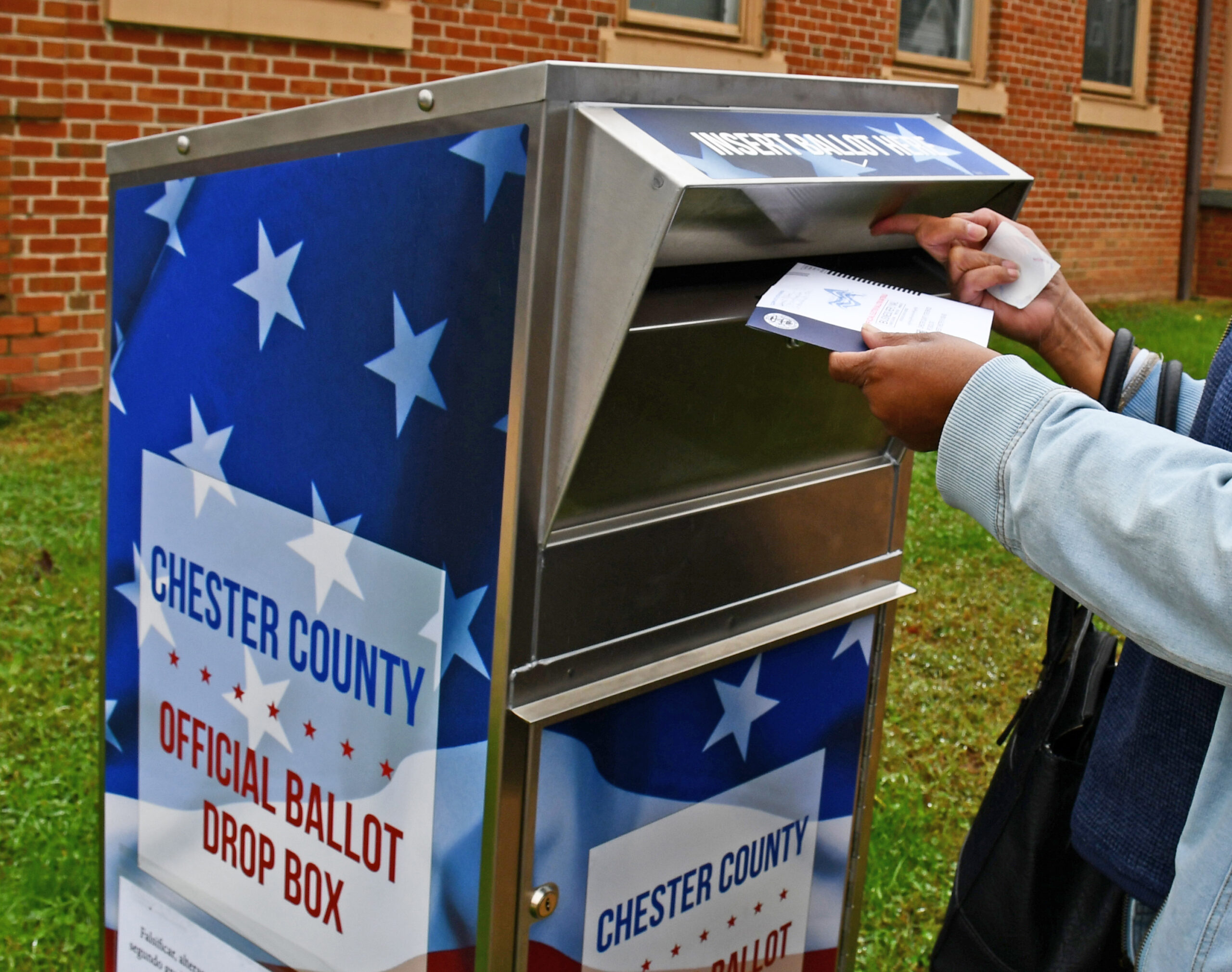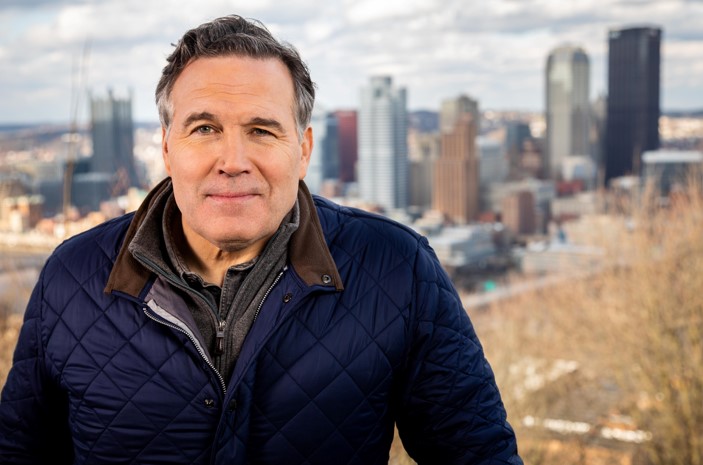What’s it Like for PA Republicans of Color in the Trump Era?

What is it like for Republicans of color in the era of Donald Trump? They certainly aren’t hiding in the political shadows.
Sen. Tim Scott (R-S.C.) may have withdrawn his candidacy for president, but his voice is one of many being heard – questioning allegiance to a political party whose policies and strategies have not benefitted communities of color.
The Democratic Party’s greatest fear isn’t surging crime in major cities, the threat of Hamas and Hezbollah, or rising antisemitism from coast to coast; it is that more than 20 percent of Black voters in several important battleground states are throwing their support behind former President Donald Trump and that it might represent a shift back to the Republican Party’s historical roots.
Republican businesswoman Janice Hollis, CEO of The Hollis Media Group, said that when speaking with Democrats who don’t know her political leaning, she gets what she calls ‘the look’ when she says she is a Republican.
“I get a lot of raised eyebrows,” she said. “I think they often see Black and Brown Republicans as traitors. My comeback is, ‘What am I betraying?’ Our major cities – Democrat-controlled cities, by the way – are rampant with violent crime, and the public schools are in terrible shape. And let’s not even discuss economic investment in underserved communities. That’s just for starters. Now admittedly, many things Trump has said are just not acceptable, but some of his policies had a beneficial effect.”
Under Trump, domestic oil production increased, and in 2018, the United States surpassed China and Russia to become the world’s largest producer. He cemented closer ties with Israel and, in a 2018 press conference with Nigerian President Mahammadu Bahari, raised the issue of the persecution of Christians in that nation – a problem largely ignored by the Biden administration and national media.
A new poll by The New York Times and Siena College found 22 percent of Black voters in six of the most important battleground states said they would support the former president.
“I’ve been a registered Republican since I was old enough to vote,” said David Dix, CEO and chairman of Luminous Strategies. Dix has more than 25 years of political and electoral experience. He is also a regular commentator on Inside Story, a weekly public affairs program on 6ABC WPVI.
“I’m from Erie, Pa., and the first political campaign I worked on was for Dick Thornburgh. I never got a lot of flak for choosing the Republican Party. I often say I’ve had a personal relationship with every president since George W. Bush. I didn’t have high expectations with Donald Trump, so there was no sense of loss regarding his presidency,” he said. “The fact that we were still intact as a nation four years later and didn’t completely implode was a bright spot for me. We came close to both of those things, but it didn’t happen.”
Calvin R. Tucker, Deputy Chairman of the Republican Party of Pennsylvania and also the managing director of Eagles Capital Advisors, LLC, has been a Republican for more than 50 years. He makes no apologies for his support of Trump.
“The main reason Democrats and some Republicans don’t support Trump is because he changed the way they do business,” Tucker said. “Trump is a businessman and an entrepreneur. He’s a political outsider. Most politicians of either party will do what they normally do, which is maintain the status quo. Trump turned that upside down – his antics and rhetoric notwithstanding. I’ve been through 10 presidents, but in terms of a real impact in our communities – although it’s not mentioned – the president who made a real impact in communities of color was Donald Trump. For example, during his presidency, he lowered unemployment for people of color.”
Tucker went on to say Trump signed the Tax Cuts and Jobs Act and the First Step Act of 2018. That legislation was a bi-partisan effort to improve criminal justice outcomes and reduce the size of the federal prison population while also creating mechanisms to maintain public safety. The Tax Cuts and Jobs Act created opportunity zones in poor communities to spur investment and economic growth.
“Our people need to vote according to our interests: deep poverty, lack of prosecution of criminals, healthcare disparities, and the problems of public education,” Tucker said. “In a city like Philadelphia, we’ve seen the results of 50 years of Democratic control. Just look at the state of the school buildings, for example. But there’s no real reason to improve conditions because it’s presumed the vote is locked in.”
That is a faulty presumption for Democrats, especially in the light of recent polls. According to them, even with numerous indictments hanging over his head, Trump has intact support from the GOP and independent voters who lean Republican regardless of their ethnicity.
A new poll of Pennsylvania voters by Emerson College revealed Trump leading President Joe Biden by 45 percent to 36 percent, while 11 percent plan to vote for someone else and 8 percent are undecided.
So, what should the Republican Party be doing to pull voters into their camp? Both Dix and Hollis were candid with their answers.
“Republican candidates must be compelled to address the urgent need to overhaul underperforming overcrowded public schools in economically disadvantaged neighborhoods,” Hollis said. “The frauds in D.C. cannot continually sell black children’s education at the expense of keeping the teachers’ union satisfied with incremental pay raises knowing darn well the technology, books, and, sadly, even some teachers are so damn substandard. Voters of color must step up and start demanding measurable actions from elected officials instead of just accepting business as usual. It is time to let our vote represent more than just empty slogans, and Republican candidates should fill this void.”
Dix said that cities like Philadelphia have been Democratic strongholds for decades. There has been too much political capitulation by the Republican Party.
“There’s a couple of things they can do. I can’t speak to how they should or how they would, but they can start on the local level,” Dix said. “The fact that there’s been a kind of abandonment in Philadelphia doesn’t speak well. Finding those locales where there is still a base of Republican voters and putting up candidates who reflect those voters, especially voters of color, would be helpful for them to do.
“I think the Republican Party should figure out what their identity of the future is. Even though many are still wildly supportive of a second Trump term, but what does the post-Trump Republican Party look like?”
Please follow DVJournal on social media: Twitter@DVJournal or Facebook.com/DelawareValleyJournal





